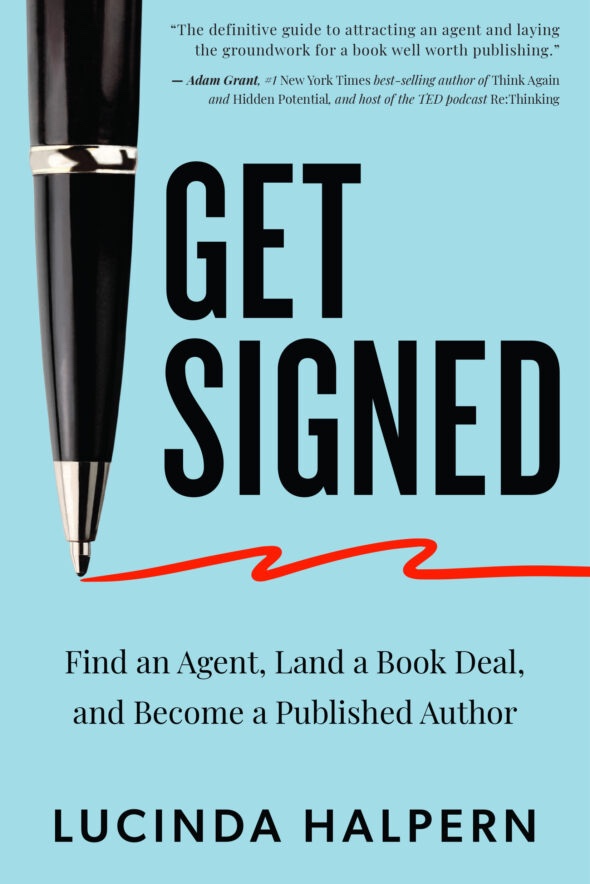Search
Book Contracts Today: What You Need To Know
It’s true that publishing can be beguiling: the germ of an idea that becomes a blockbuster bestseller, the novel that becomes a major film, the bidding war, the oft-fantasized New York Times book review. But there’s another, unsung part of the process that keeps the wheels of the industry turning—contracts. And if there’s one person we’ve come to trust and admire in the industry, whose contracts expertise exudes hard-won wisdom and integrity, it’s Deirdre Smerillo of Smerillo Associates.
In the below interview, Deirdre brings her 35 years of experience in the contracts world to us, and offers pointers on what every writer who dreams of, or has been offered, a book deal should know.
 Here’s what Deirdre had to say on…
Here’s what Deirdre had to say on…
How long a contract negotiation takes
That can vary quite a bit. On average, I’d say it’s 3-4 months from the time the deal is struck until the time the contract is signed. An author should follow up a month after the deal is made to see whether the contract has arrived yet, and then every 3-4 weeks after that. I know, I know, it’s hard to be patient.
The most basic principles you need to know
A publishing contract is first and foremost a business document; it’s about money and power. As you read through a clause, ask yourself, “If this goes bad, is it going to cost me either money or my reputation?” It’s also important to know which clauses are negotiable and which ones aren’t. For instance, clauses that have to do with how a publisher runs its business (When do they account for royalties? What happens if the company gets sold?) are largely not negotiable because they can’t be changed on a deal-by-deal basis. To make the contract easier to digest, try to break the language down into smaller, more understandable phrases.
The rights you should push most to keep
An author should try very hard to keep the film/TV rights and the merchandising/commercial rights (i.e. the right to create products based on the book, characters, etc.). An author should also try to keep electronic adaptations, which are electronic products based on the book. This isn’t the same as ebooks, however. None of these are rights that a book publisher is really in the habit of exercising itself, so the publisher has to make its case to the author on why the publisher should control these rights. On the other hand, media and entertainment companies try for a business model where content can be deployed in multiple formats—the podcast becomes the book becomes the film becomes the graphic novel—so it’s always worth listening to what your publisher has to say.
The trio of freedom
I’ve never heard it called that before, but I love it. Much nicer than “restrictive covenants.” Briefly put, this trio includes the following: The first is an option clause that allows a publisher to buy (or at least negotiate for) your next book. The second is a next book clause that restricts you from writing or publishing any other book until the current book is delivered and published. And finally, a competing works clause that says you cannot publish anything else that the publisher thinks might take sales away from this one. Not every contract has all three clauses and not every clause is as restrictive as I just described. But you can see that these are really, really important clauses (and often overlooked) because they address an author’s obligations to the publisher over and above this particular book.
The key differences between fiction and non-fiction contracts
The contracts for all of these types of books will look pretty much the same, but (as usual) the devil is in the details. For a non-fiction contract, an author needs to pay more attention to what kind of ancillary materials (index, photographs, etc.) might be included in the book that the author is expected to help pay for. A non-fiction author ought to have a fair understanding of the legal concepts that touch on publishing contracts such as permissions, fair use, libel, and invasion of privacy. Most importantly, they should know when to reach out for help. On the other hand, a fiction author needs to be especially vigilant regarding the “trio of freedom” (see above), especially if the author is prolific and/or writes under different names or with partners.
Trends in the marketplace
I would say that the biggest change lately is the institution of a “morals” clause. It was always a standard requirement in the Christian marketplace, but given all the scandals lately as well as the changing sensitivities in the marketplace, it is now common in all types of contracts. We also see, in contracts, publishers shifting the burden of marketing the book more toward the author, and requiring a certain amount of social media promotion from the author. And, of course, publishers are watching the bottom line more than ever.
Next-level wisdom
I always say that a book contract is a prenuptial agreement. If everyone operated with perfect memories and perfect information all the time, and editors never left and publishers were never sold or merged or went bankrupt, we wouldn’t need contracts at all. In the real world, you have to protect yourself the best you can. And that boils down to the grant of rights and the trio of freedom.
Interested in hands-on contracts learning?
Join the waitlist for our upcoming Contracts 101 Masterclass and be the first to learn more about the event, receive updates, and get notified when registration is open and available.
Happy deal-making!
Deirdre Smerillo started her publishing career 35 years ago as a contracts assistant at Random House and never looked back. Twenty years, one MBA, two mergers and two Contracts Director jobs later, she founded Smerillo Associates. Along with her able colleagues Melissa Moorehead and Gary Smerillo, she provides contracts, royalty and general business advice to agents, authors and independent publishers. She can be contacted via her website www.smerilloassociates.com.







